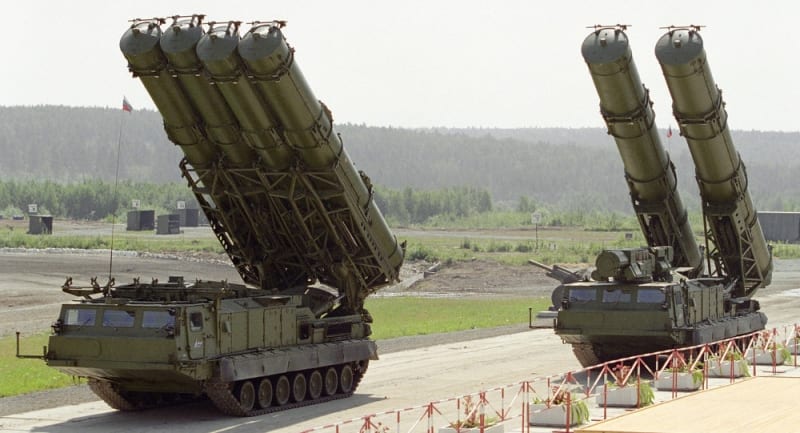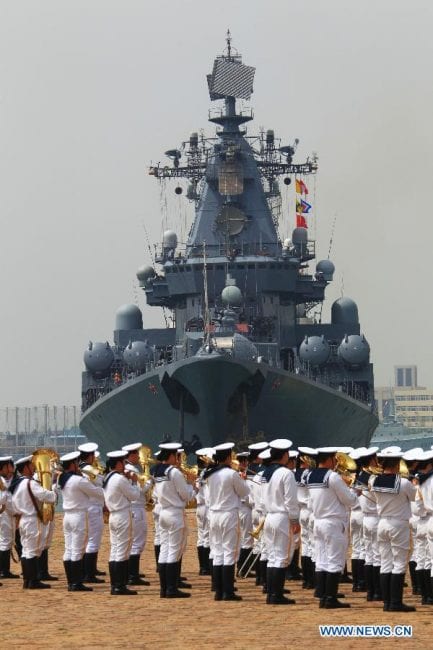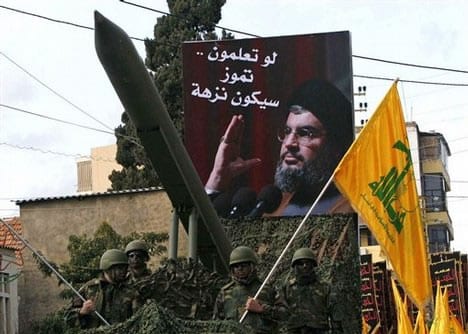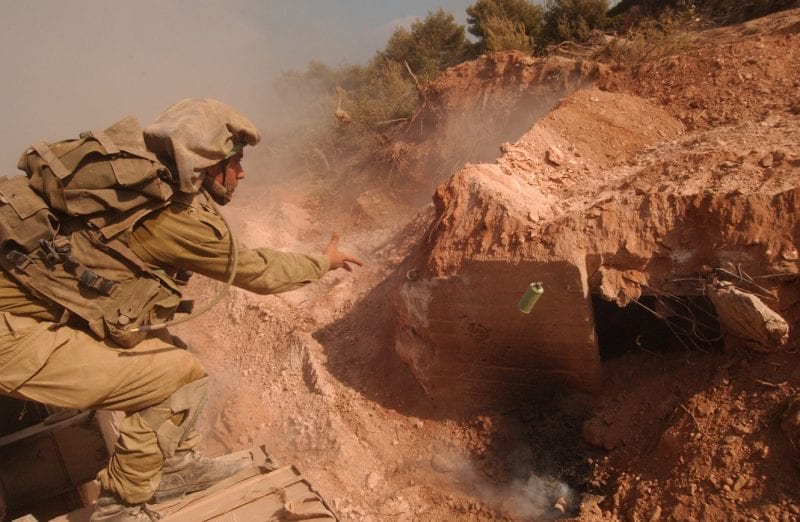![]()
Part IIA
By Andrew Korybko

Russian missiles. The Russian Federation is now the military backbone of the Coalition of the Righteous .
Crosspost with Global Research, October 10, 2015 | Oriental Review 8 October 2015
(Please read Part I before this article)
[learn_more] The first part of the article touched upon the defining elements that constitute the paradigm shift created by the Coalition of the Righteous (COR), so it’s time to examine the geopolitical consequences of this game-changing development. Each observation deals either with an analyzed observation or a forecasted scenario, and everyone is integral in understanding the “New Middle East” that’s taking shape under Russian stewardship. The first section addresses the COR crescent between Lebanon and Iran, while the second one looks at the US’ crumbling geopolitical pillars of Saudi Arabia and Turkey.[/learn_more]
The Resistance-Republican Arc Is Reborn
The author wrote about this scenario twice, once back in January and the other earlier last month (butpublished this week), and it deals with the geopolitical resurrection of the Resistance Arc between Iran, Iraq, and Syria. The earliest forecast suggested that Iran could play a stabilizing role in convincing the Kurds to abandon their secessionist desires, while the latest one built upon that idea by highlighting the crucial role that a pro-Resistance Kurdish entity (whether independent or still part of Iraq) would play in fulfilling this scenario. Also, the most recent analysis postulates that with all three entities having the common denomination of Republicanism (be it Secular or Islamic), there’s a certain ideological synergy between them that makes their cooperation all the more natural, and can also lead to the inclusion of Lebanon if it ever truly stabilizes. The COR can thus be seen as the second iteration of the Resistance-Republic Arc, but this time much more strengthened in its geopolitical standing as a result of the Russian Federation’s formal incorporation. In the context of the New Cold War, this makes the coalition the number one military enemy of the US, since it’s the only force that is literally fighting back against its proxies and dedicated to sweeping them and their puppet masters completely out of the geo-pivotal Mideast region.
Kurdistan Makes Its Choice
[dropcap]C[/dropcap]ontinuing with the theme of the Kurds’ criticality to any Resistance Arc recreation in the Mideast, it needs to be directly stated that their leaders have made a clear choice in favor of the COR. By going from unipolar clients to multipolar allies, the Kurds have played a major role in ensuring the viability of the coalition and securing its internal unity in the face of terrorist aggression against it. Russia was the kingmaker in having this happen, as its focused diplomatic efforts over the past two months are largely responsible for the Kurdish Pivot. Without this having occurred, then the geopolitical danger of a pro-American Kurdish client state rising out of the coalition’s anti-terrorist campaign would have hung over the multipolar world like the ultimate Damocles’ Sword. Therefore, the Kurds certainly deserve their fair share of credit and should be saluted for bravely rejecting the US’ vision for them and transferring their trust to the COR instead. Washington can’t in the least bit be happy about this, but it’s mostly unable to do anything about it because its Turkish attack dog is mired in an escalating civil war at home and not at all in a position to project large amounts of punitive force across the border (with its latest small-scale ground and air raids being the most it can realistically do for now).
Iran’s Internal Debate Is Over
[dropcap]T[/dropcap]he signing of the Iranian nuclear agreement temporarily revealed the internal divisions among the country’s elite, with Western-slurred “hard-liners” decrying it as being full of too many concessions while the so-called “moderates” praised it for its pragmatism. Going further, Iran entered into a brief period of political schizophrenia, courting Western investment at the same time that Ayatollah Khamenei reaffirmed that his country’s stance towards the US remains unchanged. This confusing dichotomy led the author and others to wonder whether or not Western-friendly “moderate” forces had succeeded in secretly assuming power behind the scenes and hijacking Iran’s geopolitical orientation. While some level of political differences still most surely exist in Iran’s upper echelons, the country’s participation in the COR firmly indicates that the “hard-liners” (in reality, the forces that are the most geopolitically pragmatic in Iran) are still calling the shots, which is a huge relief for the multipolar world. Venturing to explain how they pulled out on top, it’s very likely that F. William Engdahl’sexplanation of Russia’s embedded military and technical influence strategically overriding any of the West’s economic temptations is the most accurate reason, and while questions still remain about the impact that Iran’s forthcoming return to the global energy market will have for Russia, that too is likely to have already been addressed by both parties.
The Friendship Pipeline Returns
[dropcap]O[/dropcap]ne of the geopolitical dividends that the War on Syria was supposed to reap for the West and its regional allies was the unviability of the Iran-Iraq-Syria Friendship Pipeline, but with order soon to return to the latter two states, it’s very probable that the project will actually be revived. This is even more so as Western Europe continues to look for a non-Russian energy alternative, especially now that the Turkish-Kurdish War has raised serious questions about the security of the TANAP and TAPlines. Thus, a geo-energy reversal appears to be taking place, one in which TANAP and TAP look unviable while the Friendship Pipeline seems realistic. The windfall of transit revenue that Iraq and Syria would receive for hosting the pipeline could greatly assist with their post-war reconstruction efforts, thus making it a natural economic choice for their leaderships (aside from the loyal commitment that each of them already have in resurrecting the fraternal project). Assuming that the opportunity arises for its physical creation (which is very possible considering that the COR will succeed), this begs the question about how such a large influx of gas on the global market would impact on Russia’s grand energy strategy.

While Russia has decisively entered the Middle East theater, China may soon join her. Photo: Chinese marines honor guard sees off the Varyag, a Russian missile cruiser.
The issue of massive Iranian gas exports threatens to potentially split Russia and Iran in the future more than any other, but in all likelihood, it seems as though Moscow has already thought this through in advance and reached some sort of understanding with Tehran. After all, it’s logical to conclude that once Iraq and Syria return to full stability, Iran would naturally take the lead in suggesting the recreation of the Friendship Pipeline, even more so in the context of the post-sanctions environment it will be in by that time. The pipeline won’t be built right away, of course, and this gives Russia time to flex out its response, which is predicted to be the continued trend of lessening its budgetary dependency on energy exports and diversifying more towards the Asian marketplace. Pair this with the fact that the Friendship Pipeline will export LNG, which thus gives it a very narrow consumer base concentrated mostly in Western Europe, and one can realize how it won’t directly threaten the demand for Russia’s geo-critical Balkan Stream pipeline, thereby avoiding the potential for an unfriendly energy competition between the two Allies. On a final note about this topic, Russia is also primed for expanding its real-sector economic relations via a broad South Eurasian Pivot (which touches into East Africa, too), meaning that its prior relative dependence on energy exports (typically misrepresented, at that) will take on even less of an importance than before as the country engages in new, innovative, and geographically wider methods of spreading its influence.
The Lebanese Lifeline

Hezbollah has played an important role in Syria, and it may now have an even bigger role in the days ahead, albeit in the broader region, inside the Lebanon pivot.
[dropcap]T[/dropcap]he Russian military intervention in Syria has relieved the pro-government ground forces of enormous pressure, and it’s thus made it much easier for them to operate. This opens up the possibility that Hezbollah’s fighters there are no longer needed in the same capacity as before, and could thus return to Lebanon to potentially deal with the domestic crisis there without having much of a negative on-the-ground consequence for the Syrian Arab Army right now. One shouldn’t misunderstand the author at this juncture – Hezbollah played an enormously important role in supporting Damascus in its anti-terrorist missions – but it’s just that Lebanon, the epicenter of the movement, is now facing its own existential crisis that might necessitate the organization playing a key role there in some way or another. Had Russia not directly intervened in Syria, then it would have been much more difficult for the Syrian Arab Army to manage the frontlines had Hezbollah needed to abruptly pull most of its forces out of the country for whatever unexpected reason. Now, however, no such military vulnerability exists in the same sense as it previously did, thus giving Hezbollah more freedom of military maneuverability to save Lebanon without having to make the painful decision of choosing between helping its homeland or Syria.

2006: Israeli soldier tosses grenade into a Hezbollah dugout. Eventually Hezbollah fought the IDF to standstill.
Hezbollah’s flexibility in now being able to more conveniently transfer units from Syria back to Lebanon will likely help it in better managing the country’s crisis if it escalates and such a need arises. Complementarily to this, Russia has also just announced that it will provide an unspecified amount of military equipment to Lebanon’s armed forces and law enforcement agencies to assist with their anti-ISIL efforts. This stroke of strategic genius will help the country counter any terrorist threat that spills over its borders during the forthcoming Russian-Syrian Liberation Offensive, and it will also serve to bolster the state in repelling any destructive Color Revolution-like Islamist takeover. The lifeline that Russia has thus extended to the Lebanese state might be sufficient enough not only to finally bring some semblance of stability to it, but also to make it a member of the COR. If the latter comes to be, then the Resistance Arc would continue to consolidate itself as the Republican Arc, further highlighting the ideological differences between it and the unipolar-affiliated monarchies to the south. Additionally, Lebanon’s incorporation into the Alliance would help it shake off the influence of pro-Saudi infiltrators that have snuck the Kingdom’s influence into the country and its institutions over the past decade.
 Andrew Korybko is the American political commentator currently working for the Sputnik agency. Copyright © Andrew Korybko, Oriental Review, 2015
Andrew Korybko is the American political commentator currently working for the Sputnik agency. Copyright © Andrew Korybko, Oriental Review, 2015
Note to Commenters
Due to severe hacking attacks in the recent past that brought our site down for up to 11 days with considerable loss of circulation, we exercise extreme caution in the comments we publish, as the comment box has been one of the main arteries to inject malicious code. Because of that comments may not appear immediately, but rest assured that if you are a legitimate commenter your opinion will be published within 24 hours. If your comment fails to appear, and you wish to reach us directly, send us a mail at: editor@greanvillepost.com
We apologize for this inconvenience.
![]() Nauseated by the
Nauseated by the
vile corporate media?
Had enough of their lies, escapism,
omissions and relentless manipulation?
Send a donation to
The Greanville Post–or
But be sure to support YOUR media.
If you don’t, who will?




